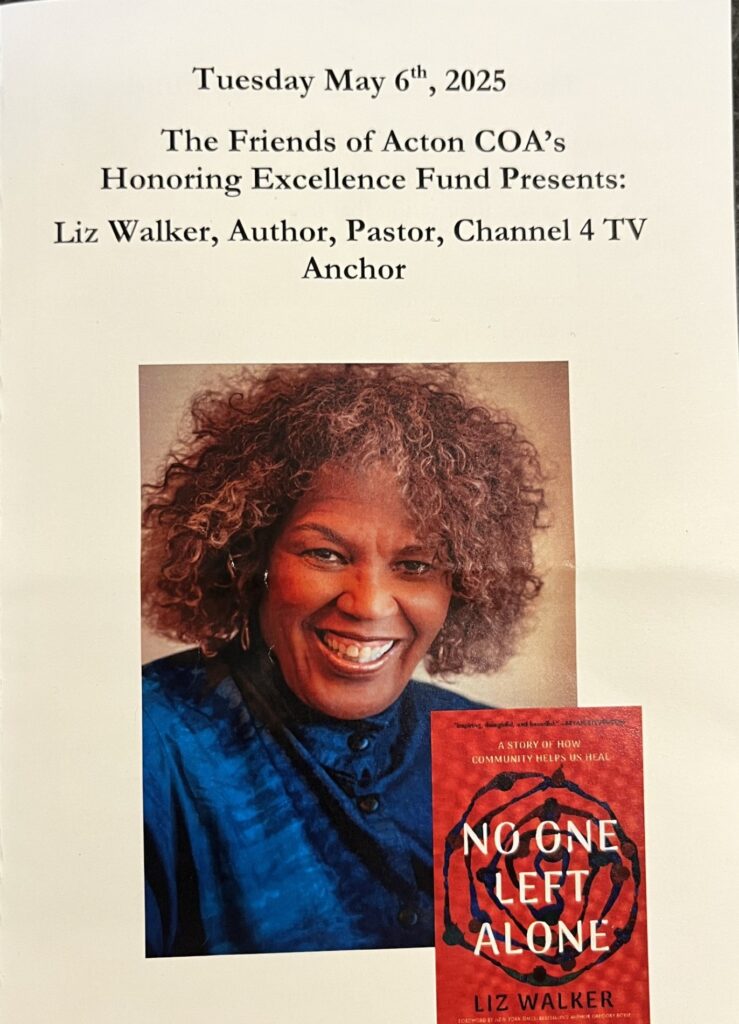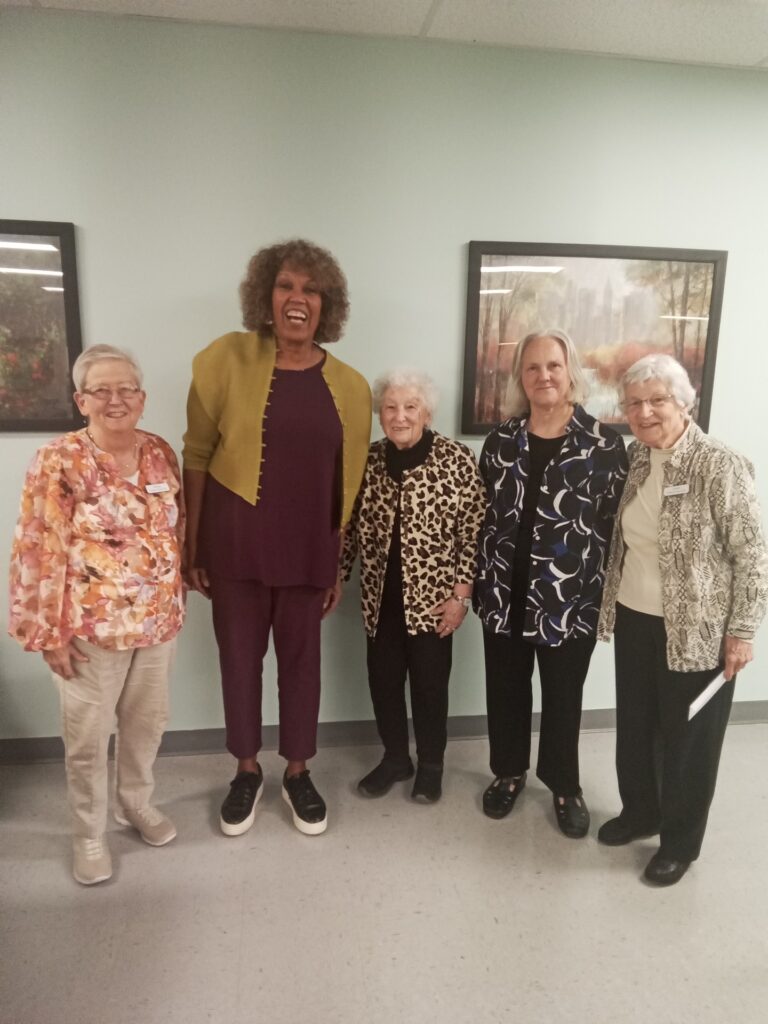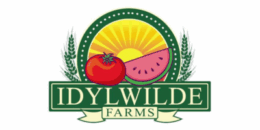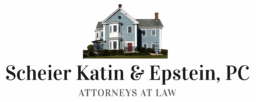Liz Walker, author, pastor, and former Channel 4 TV news anchor, captivated an audience of 85 at the Acton Senior Center on Tuesday, May 6 as she explained her journey from News Anchor to author of No One Left Alone. Dressed in deep purple with a spring green cardigan, Walker was relaxed and engaged, and explained that when she arrived in Boston early in the 1980’s, she thought that she would be in journalism for her entire career.

However, the violence of the civil war she witnessed during a trip to Sudan in 2001 gripped her. Listening to her heart, Walker embarked on a new phase, which included becoming a pastor and building a girls school in Sudan over the course of 11 years. She had thought that the fact that her father was a minister was reason enough for her to stay clear of this field, but realized that she was called to it, and when asked to step in as minister at Roxbury Presbyterian Church, found that she had fallen in love with the parishioners as much as they had fallen for her.
She was dismayed to learn that shootings in the area had become almost normalized and that as a journalist, she could only scratch the surface of what happened. She realized that as a pastor, there was an opportunity to really make a difference, and not only to hear people, but to turn that listening into healing.
When Cory Johnson, the son of a parishioner, was killed, Walker knew she needed to act. Without knowing how many people would attend, Walker created a meeting for people to talk about their trauma together. People would come in, share a meal, be treated to dance, music or some art form before an open mic forum would begin. All were welcome, invited, and loved. No one needed to register in advance. She wanted as few barriers as possible for people to attend. The formula she was banking on was that people willing to listen=love. She could not have predicted that 75 people would show up for this opportunity to talk about pain, anger and trauma.
What began as a monthly meeting turned into weekly gatherings, and is now located in 20 sites, including New York, Washington, D.C., Tennessee, and Florida. Cory’s mother, Deborah Johnson, who was at the Senior Center presentation, agrees with the notion that the group is a powerful force for healing. She states that she has become a better listener since being a part of it.
Each group includes at least one trained clinician in case what surfaces goes beyond what the trained peers in the group can manage. In 2011, clinician Colleen Shocka led a grief group that included grandparents to grandchildren, an unusual combination of members for a group of this type. She could see the powerful impact of people facing what they fear, and telling someone about it. Called “Can We Talk”, it meets every Thursday, alternating between in person and zoom meetings.
Walker emphasizes that wholeness and joy are possible after experiencing even terrible loss, and that community is a profound way to help in the healing process. Can We Talk fosters this kind of communication between people, facilitating connections that run deeper than the time in the meetings. Walker reminds us that it is indeed possible to move on, and that healing is always possible. We have all experienced trauma in one way or another, and we can offer each other space to let this out. The group is not about giving advice, but really focuses on listening.
Shondell Davis, who has also lost a son to violence, remarked that people still care, that being a companion to someone on a healing journey is important work and a vital connection. Walker recognized Florence Huffman, the administrator at the church, as the person who “really runs the church.” Her gratitude is evident, and Walker states that she has learned to be a better listener through the program. She chuckles and notes that she used to try to “fix” her 36 year old son, but appreciates that he is fully adult, and not in need of fixing.
Walker embraces the notion that vulnerability generates growth, and providing an opportunity for people to feel safe enough to be vulnerable means that growth takes place in a deep, meaningful and lasting way. The Cory Johnson Program for Post-Traumatic Healing has helped many and will continue to do so, she said.
Proceeds of the book support these projects, and Walker encouraged participation in this way. It is clear that not only has Walker listened to those around her, but she has listened to herself and what feels like the best way that she can contribute to the health and mental health of others. There are many who have benefited from her insights and unique ability to translate her vision and beliefs into programs that are now helping people across the nation. Ms. Walker’s visit was supported by The Friends of Acton Council on Aging’s Honoring Excellence Fund. Walker said Can We Talk groups can be set up in any community, with information available at the Can We Talk Network website.

Meg Stafford is an award winning author of two memoirs, speaker, storyteller and columnist. Her forty years as a licensed psychotherapist have provided invaluable insight into the quirks and passions of the human experience.













